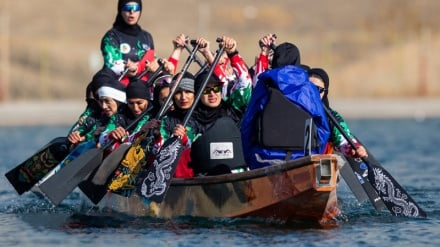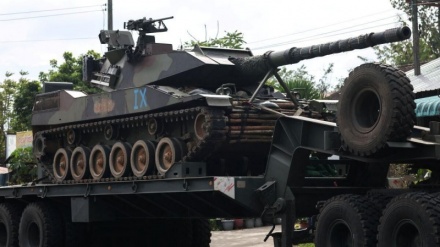A golden opportunity to talk about elephants
It’s Golden Week again, which means the cities of Southeast Asia are seeing an influx of tourists from China visiting iconic sites, buying souvenirs and tasting local delicacies.
Stay with us for an interesting article which appeared on Asia Times website, titled, “A golden opportunity to talk about elephants”, by Bangkok based columnist, Lee Poston.
They are traveling from a country that has had success recently in tackling the illegal trade in ivory. This trade has caused a serious decline in elephant populations across Asia and Africa, but a ban in China two years ago resulted in a significant drop in ivory purchased within the country. And it seems to be sticking. A new World Wildlife Fund (WWF) survey of 2,000 Chinese nationals found that overall demand for ivory among Chinese consumers remains down two years after the ban. Simply put, bans work. Nearly 80% of respondents in the survey said the ban would prevent them from buying in the future.
That’s the good news. But Golden Week is not so golden for conservationists and elephants as China’s neighbors are increasingly feeling the pressure from the ivory ban. Like a balloon that’s squeezed in one place and simply bulges in another, Thailand, Laos, Vietnam, Myanmar and Cambodia are seeing an impact from the ban in China.
According to the study, this pressure is coming from those who travel regularly outside the country and a group known as “diehard buyers,” those individuals who are the least likely to be swayed to stop purchasing regardless of the law or other deterrents.
Among the Chinese nationals surveyed, buying during travels has increased from 18% in 2018 to 27% of travelers in 2019. Thailand, Hong Kong SAR and Cambodia are the destinations most cited by travelers as the locations they bought ivory products outside mainland China.
Thailand is the number one destination for Chinese tourists during Golden Week, part of some 10 million expected to visit during 2019 and the millions who travel to neighboring countries. It’s legal in Thailand to purchase ivory from regulated markets that sell only domestically sourced ivory. But many buyers are unaware that it is illegal to transport it across international borders. Thailand and its neighbors are all signatories to the CITES Treaty, meaning they are required to enforce bans against the international commercial trade of ivory and many other endangered species like tigers and rhinos.
The ongoing purchasing of ivory within the Greater Mekong region is troubling news and highlights the real need to increase awareness about the implications and penalties for illegal wildlife purchases. The most significant reason respondents to the China survey gave for not buying ivory was due to the fact that it is illegal. That’s why WWF and other organizations are trying to reach as many travelers as possible this Golden Week with messages that purchasing ivory during their trip and taking it across borders is illegal.
Across the region, tourists are being met with messages at airports, on social media networks and at shopping centers warning about the penalties for purchasing and transporting ivory. Tour guides are learning how to better inform their clients about the issue, and some airlines are using their communication channels to educate travelers about what they should buy and what to avoid.
Tour guides are key in this effort. They have the most influence on which shops travelers visit and they have the most one-on-one interactions with them. They also have a high degree of trust that can go a long way toward influencing purchasing decisions.
There are additional misconceptions about ivory that awareness campaigns need to address, including the fact that many who purchase ivory believe that it comes from elephants that have died naturally. The overwhelming majority of ivory for sale is from elephants that have been killed just to get their tusks.
While much more needs to be done, real progress has been made recently in the Greater Mekong region. Myanmar has made great strides, for instance. The Yangon regional government recently declared strict enforcement against the sale of illegal wildlife products such as ivory at Shwedagon Pagoda and Bogyoke Market. And Laos has been cracking down on shops in the notorious Golden Triangle and major cities that openly sell ivory and other wildlife products. Prime Minister’s Order Number 05 instructed government officials to strictly enforce existing laws and the new penal code significantly increased penalties for selling wildlife products illegally.
Vietnam has made significant strides to deter traffickers and reduce demand since a new penal code went into effect in January 2018 imposing harsher laws and penalties for the buying, selling, transporting or possessing of endangered wildlife and wildlife products like ivory. An uptick in seizures and successful prosecutions has resulted in some of the longest jail sentences and fines ever, including a 10-year sentence for a Vietnamese man convicted of trafficking 27 endangered big-headed turtles and four Asiatic black bear paws; the longest sentence ever imposed for wildlife crime in Vietnam.
These are all positive signs but tackling the scourge of illegal trade in wildlife and ivory is a marathon endeavor, not a sprint. Much like the balloon, if it’s stopped in one location it will erupt elsewhere, including online.
In addition to continuing programs to raise awareness, there needs to be a much stronger emphasis on sophisticated law enforcement and cooperation across international boundaries. And prosecutions need to be just as effectively administered as arrests. Wildlife crime is not treated as seriously as other crimes like drugs and human trafficking – but it should be.
If enough action is taken over the next 365 days, perhaps next year’s Golden Week will be a time of celebration for not only tourists but also the world’s elephants and other endangered species.
SS/SS


